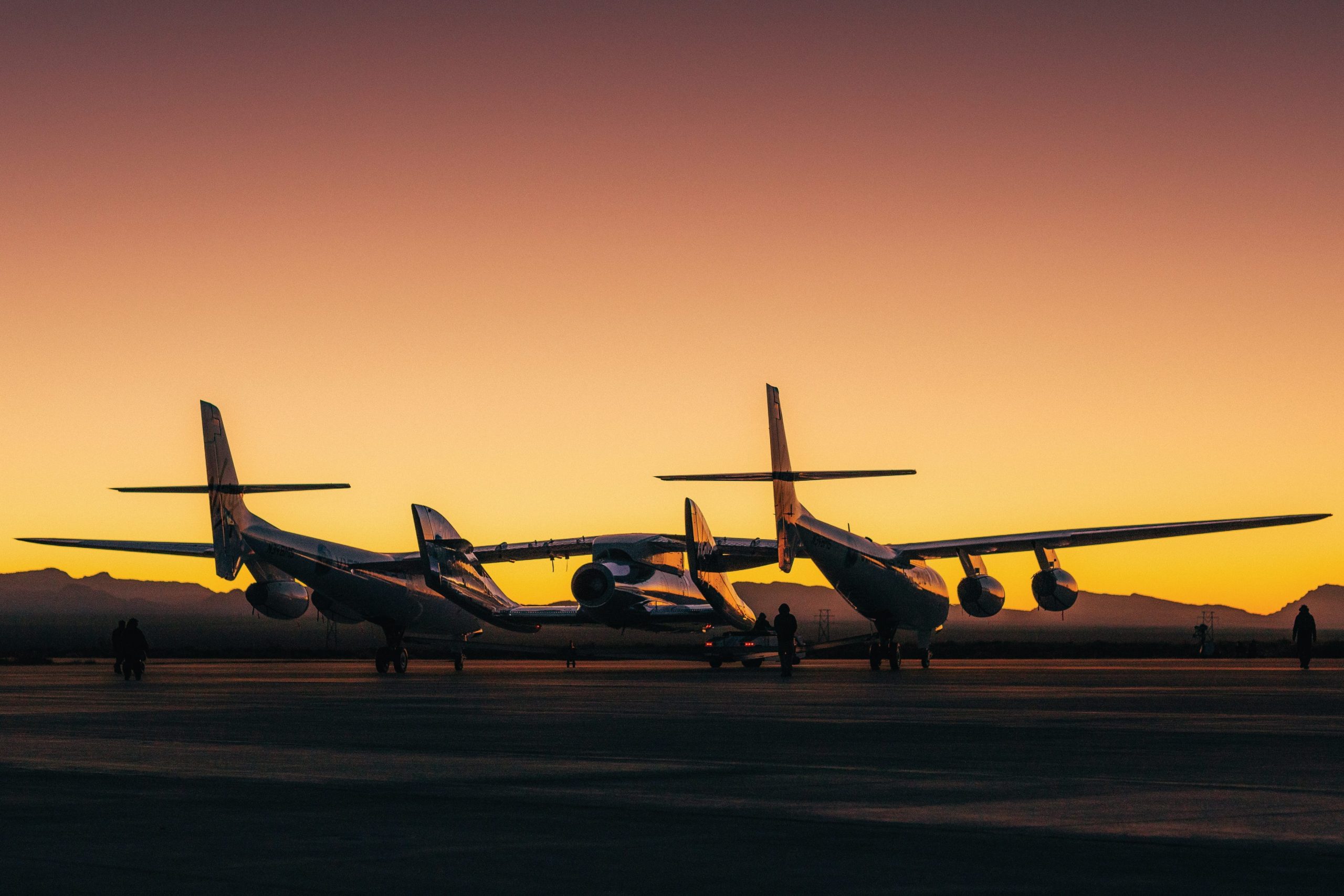
Quinn Tucker for Virgin Galactic
- Virgin Galactic on Saturday aborted a manned flight of a rocket-powered spaceship from a New Mexico spaceport.
- “Take off! VMS Eve and SpaceShipTwo Unity have taken to the skies above Spaceport America, New Mexico,” the company said on Twitter at about 8.30am local time.
- The company posted updates, saying it was about to launch, but then abruptly said: “SpaceShipTwo Unity is headed for home. We will share more information once we have it.”
- Later, Virgin said: “Early update on flight: The ignition sequence for the rocket motor did not complete.”
- Visit Business Insider’s homepage for more stories.
Virgin Galactic on Saturday afternoon aborted a manned flight of a rocket-powered spaceship from a New Mexico spaceport, a reversal of the most significant milestone yet in the company’s 16-year journey to create a space tourism industry.
The company’s SpaceShipTwo took off on the back of a mothership at about 8.30 am. local time, expecting to release from the mothership 45 minutes afterward.
But when launch time came, it appeared that the rocket turned around almost immediately.
“SpaceShipTwo Unity is headed for home. We will share more information once we have it,” the company unexpectedly said, moments after it planned to launch the ship.
—Jonathan McDowell (@planet4589) December 12, 2020
The company said both ships had returned to ground safely.
Everything seemed to be running smoothly in the moments leading up to the move to abort. About 45 minutes into the flight, the company had said: "Mission Control has reported that we are go for release."
Then: "L-minus 1 minute until release of SpaceShipTwo Unity from our mothership VMS Eve."
Then there was a long pause as users refreshed Twitter, waiting for confirmation that the ship had made it into space. A live stream of the event showed the rocket sparking, then quickly going out.
A few minutes later, the company confirmed that there was an issue with the rocket, saying, "Early update on flight: The ignition sequence for the rocket motor did not complete."
—Virgin Galactic (@virgingalactic) December 12, 2020
It added: "Vehicle and crew are in great shape. We have several motors ready at Spaceport America. We will check the vehicle and be back to flight soon."
Saturday's launch was to be the first of three manned tests for the company, which plans to launch space tourism by 2021. On the ship were two pilots, CJ Sturckow, formerly of NASA, and Scottish-born Dave Mackay, the chief pilot. The company released pictures of the two wearing blue flying jumpsuits.
"Today's flight expects to fulfill a number of objectives, including testing of the customer cabin and upgraded horizontal stabilizers and flight controls. The flight will also carry scientific experiments as part of the NASA Flight Opportunities Program," the company said.
While Saturday's flight only carried essential crew, it was supposed to mark another step forward for the company founded by Sir Richard Branson about 16 years ago. Branson planned to be aboard the company's third test flight, which isn't yet scheduled, according to BBC News.
When Virgin Galactic was founded, private space travel seemed like more of a far-off novelty, but Branson is in good company. Both Amazon CEO Jeff Bezos and Tesla CEO Elon Musk have founded their own space-travel companies, Blue Origin and SpaceX respectively. Virgin Galactic stock jumped as much as 14% last week, in anticipation of Saturday's flight.
Talking with the BBC, Will Whitehorn, president of the UK Space Industry Group, said: "This is going to be a very safe and low-cost system. Developing it has been groundbreaking and it hasn't been easy."
